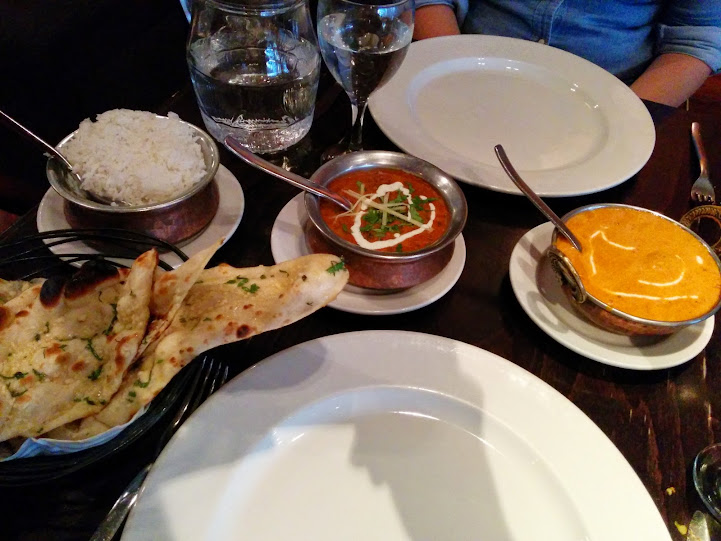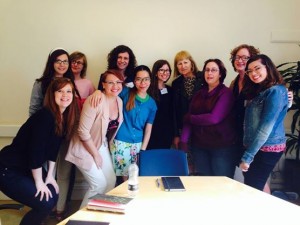I should start with the fact that on Friday, the last day of week one here at Oxford, I had a delicious flat white and scone with clotted cream and jam for breakfast. <dangerous>
Our first speaker was Stefaan Verhulst, and he presented his work regarding innovations in global governance. Stefaan, who is co-founder of The Governance Lab at NYU, explained that this topic is important because how the internet governed will ultimately determine its potential. Issues he discussed include access, content, code standards, trust, and trade. Because digital media allow spaces to cross borders, online governance have global, social, and economic consequences different than offline transactions. Stefaan proposed different models that may help in the internet governance debate such as direct governance, rough consensus, multi-stakeholders, and a layered approach. Now, however, he explained that governance is just the “oil spill” model, or very reactionary. Additionally, narratives in news media complicate the issues even further. We see fragmentation, loss of trust, obstacles to innovation, and lingering unresolved issues. Stefaan’s main conclusion was that the field really needs more research and evidence.
Next, we heard from Ralph Schroeder and his “Social theory after the internet.” He asked, how does the internet fit into current social theories?. He argued that internet research is skewed toward findings that support the internet is for social good. However, Ralph explained, while the internet may change the social, it is not always for the “good.” There is now a social divide and a political divide of the elites vs. the people that is magnified by social media. The US is much less participatory, and people have limited attentive space and that some people cannot see beyond this space because they are “lazy.” Clearly, I had a bit of issue with him calling those people who are essentially not media literate lazy. There are many people who are not privileged enough to have the time, effort, money, and so on to be “literate.” Therefore, we cannot put all of the onus of people to, completely on their own, realize the media are fighting for our “eyeballs.” His presentation was definitely interesting, albeit quite different from my own research stances.
The first student presenter was Ameera Mansour, and she presented her dissertation proposal regarding how information literate mothers are in online forum spaces. She is working on two research questions: (1)What does it mean to be information literate in a social media community? and (2)How do people appropriate social media in their everyday lives? She presented some sites for potential case studies and noted that she will be conducting an online ethnography.
The next presentation was: “Females’ perspective on emergence to adulthood: The role of information communication technologies” by Megan Lindsay. By trying to understand both identity and intimacy online, Megan has coined “identimacy” as her key area of investigation. Speaking with females, 20-30, Megan will explore how ICT experiences influence identity and intimacy. Her work is in conversation with academics such as Archer and Donati, both critical realism scholars. She proposes that identity is both embodied and emerges in society and that identity is formed within powerful structures. But, our personification gives us agency. I found a lot of overlap between what Megan studies and what I study; a lot of her methods are similar to narratology methods, for example. Additionally, I found her definition of intimacy to be extremely intriguing: your partner agrees with you when you talk about yourself. S/he proves that s/he knows you and, at the same time, is validating the way you have chosen to write yourself into being. I think this can say a lot for why we feel so intimate with people on a site like Facebook–an easy click of the “like” button or a short comment as validation suddenly creates a feeling of digital intimacy.
Lastly, we heard from Wilfred Yang Wang and his work on Weibo.com. He noted that there is a special tension between the nation state and local places in China, specifically Guangzhon. Wilfred is interested in geo-ID, or the idea that there is a sense of self and a sense of belonging to a geo-place. Weibo is a digital place, but it is not without borders. This sense of place is not static, and Wilfred will be researching how users experience geo-ID online and where Weibo comes into the equation.
After the scheduled sessions, a few of us had a chance to sit down with Judy Wajcman. It was a great experience, all of us discussing our different research areas and getting Judy’s insight. Here we are with her!
Friday night ended with a delicious dinner at the Indian restaurant 4500 Miles from Delhi! ::drool::

